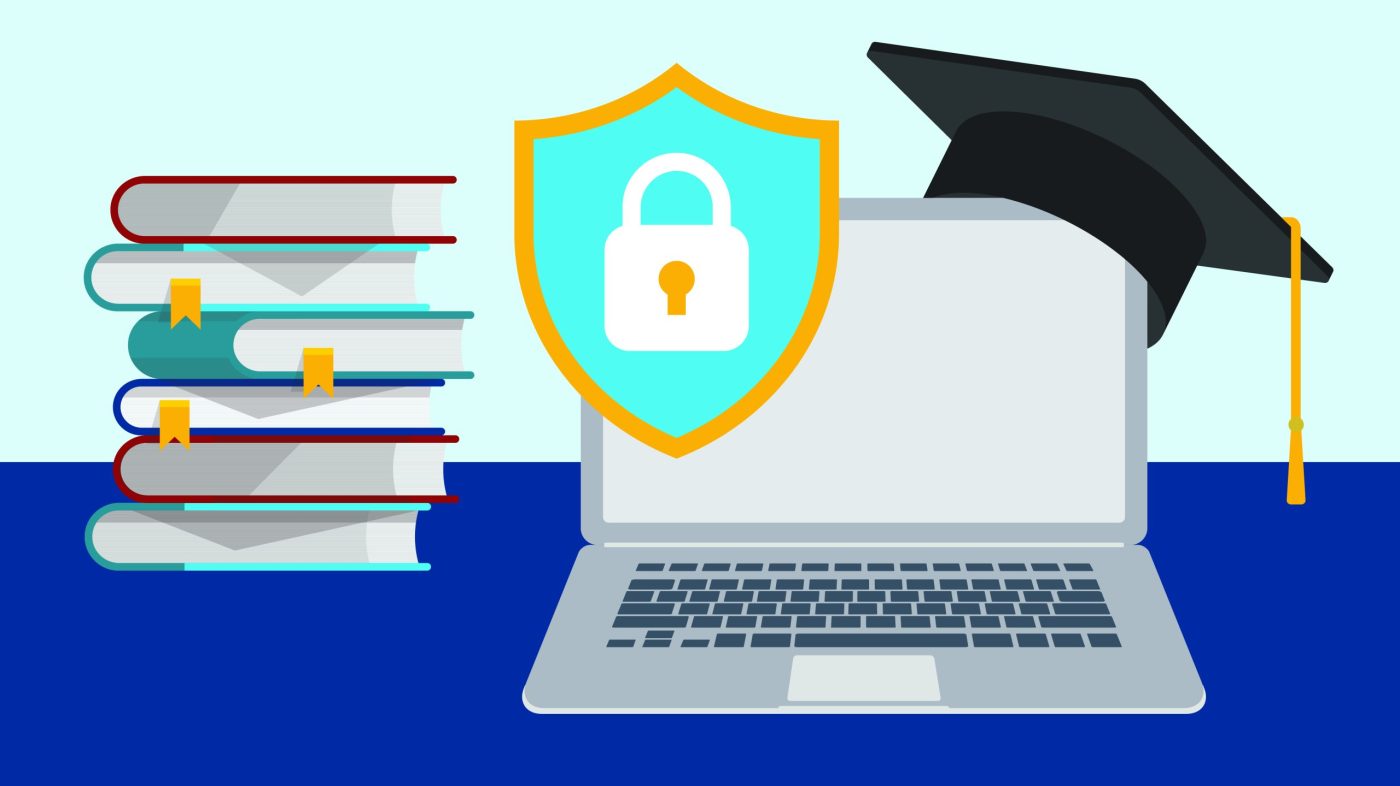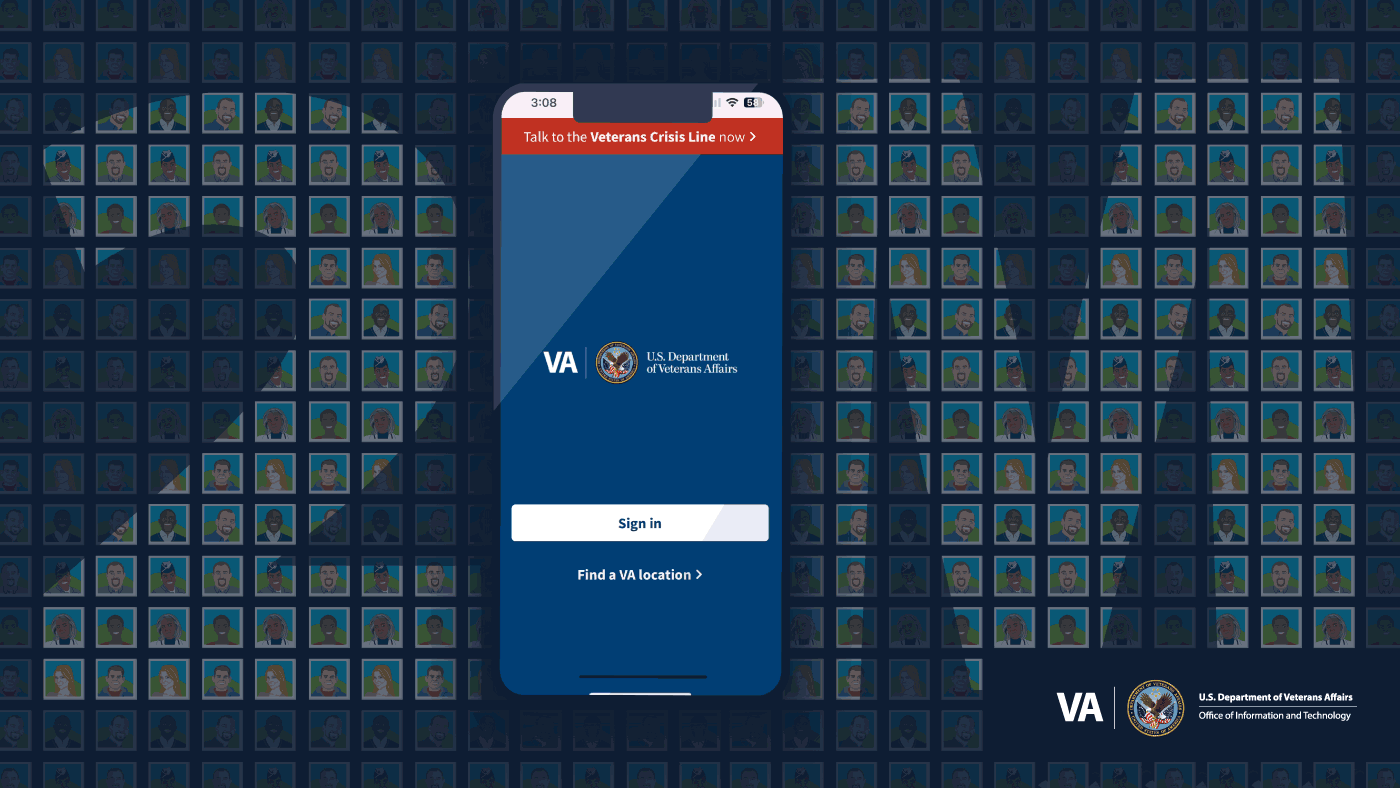With the fall semester underway, Veterans attending colleges either on campus or online are rightly focused on classes, homework, study groups, maybe even their football team. They should add educating themselves about protecting their personal data to the list.
Identity thieves place a high bounty on the 650,000-plus student Veterans, given the high value of their earned benefits, as reported by VA and the Federal Trade Commission (FTC). Student Veteran data is increasingly sought after for use in a variety of illicit activities, including setting up fraudulent loans, gaining access to tax returns and stealing earned VA benefits.
Student Veterans can greatly enhance privacy by keeping laptops and accounts password-protected, enabling multi-factor authentication, and never using unsecure networks for schoolwork. VA encourages Veteran students to:
- Create a strong, distinct password with 12 to 14 letters, numbers, and symbols for each device and account.
- Always use multi-factor authentication, which is a verification process that provides an additional layer of protection using multiple methods to confirm a user. A few examples are answering security questions, providing a code sent to the user’s verified email account, and fingerprint verification.
- Never use unsecure networks, such as public Wi-Fi at a coffee shop, which allow anyone on those networks to access the information sent or received from a connected device. This includes passwords, credit card numbers, academic information or other sensitive data.
Being safe with education apps
The U.S. Department of Education points out that universities and schools increasingly rely on educational apps and third-party services to meet students’ needs. Creating student profiles, setting up payment portals, using food service accounts, maintaining student educational records—each requires students to enter personally identifiable information (PII). PII includes date of birth, full name, home address and Social Security Number. If hacked or mishandled, this data can cause immediate issues, even problems after leaving school.
For your own understanding and safety, be sure to review an app or third-party service’s privacy policy before submitting personal information. Policies identify what information the organization is collecting and their intentions. The Washington Post recommends looking out for terms such as “affiliates,” “partners,” and references to “sales.” As the Cybersecurity and Infrastructure Security Agency points out, third-party companies can add information to a marketing email list or sell that information to outside organizations.
Protecting Veterans’ schoolchildren
Veterans with children want to also understand privacy protections in place for your children in school. Like parents, the children of Veterans are prioritized by identity thieves because of their access to earned VA benefits. Bad actors can use Veterans’ children’s personal information to illegally set up bank accounts, apply for loans, or apply for government and earned benefits, according to the FTC.
Veteran parents of students under 13-years-old will want to be familiar with The Children’s Online Privacy Protection Act (COPPA). COPPA requires organizations to explain the intent and scope of the information they collect from children. As the FTC notes, these requirements extend to educational apps and any website or third-party service provider a child’s school may use. Until parent or guardian provides consent, these organizations cannot collect a child’s data. You can remove consent at any time, and companies must notify parents and guardians of any policy changes. Organizations violating COPPA requirements can be reported to the FTC.
The Family Educational Rights and Privacy Act (FERPA) provides students and their parents with privacy protections. Enacted in 1974, this federal law protects the privacy of student education records and applies to any public or private elementary, secondary, or post-secondary school. It also applies to any state or local education agency that receives funds under an applicable program of the U.S. Department of Education. The Education Department points out that while schools and universities can share students’ PII and educational records with outside parties for legitimate educational purposes, students (and their parents) can access, review and request edits to this information. Veteran students and parents can find more privacy resources through the Department of Education.
Veterans and parents can use the following links to learn more about privacy protection for students:
- Protecting Your Privacy | CISA
- Protecting Student Privacy While Using Online Educational Services
- How To Protect Your Child From Identity Theft | Consumer Advice (ftc.gov)
- FTC to Ed Tech: Protecting kids’ privacy is your responsibility | Federal Trade Commission
- Family Educational Rights and Privacy Act (FERPA)
Topics in this story
More Stories
The “Increase Your Credit Score” workshop will be a live event with credit experts whose aim is to help you bolster your credit score and financial stability.
Tax filing season has become a popular time for scammers to target unsuspecting taxpayers through multiple communication avenues. VA wants Veterans to remain vigilant against cyberattacks aimed at stealing personal and financial information.
The VA Health and Benefits mobile app is modernizing how Veterans access and manage their health care and benefits information.







This Service is far Toooo Difficult to USE